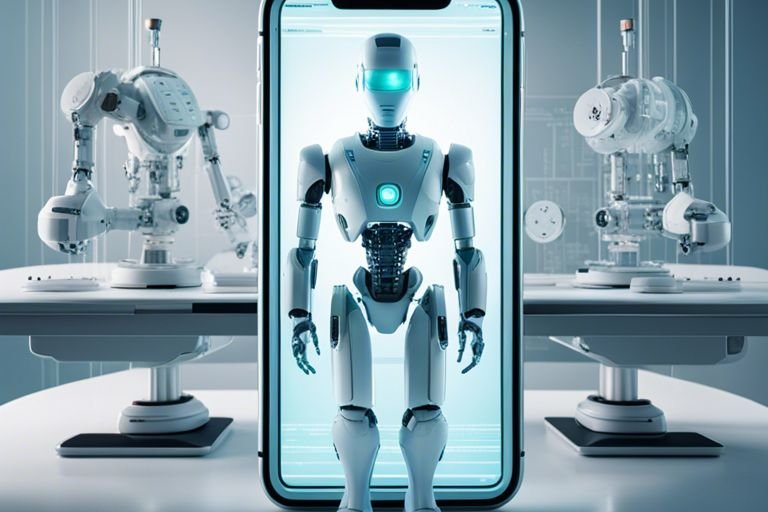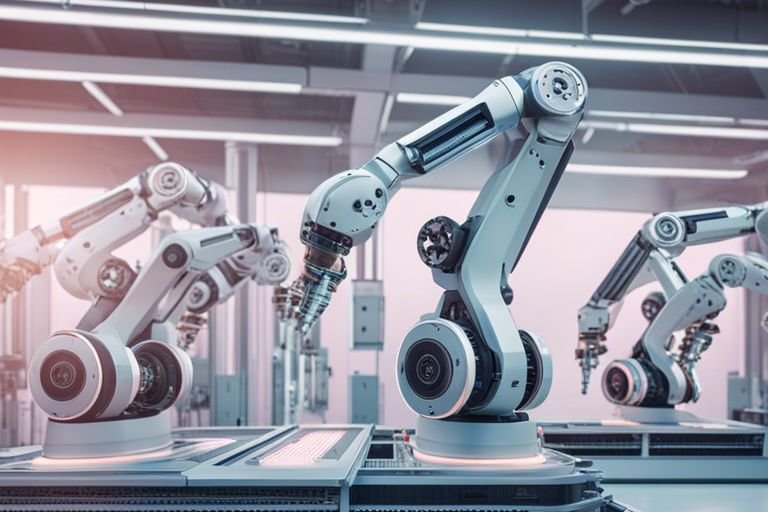Can AI help to improve the accuracy and speed of scientific research?

Envision a world where scientific research can be conducted with unprecedented accuracy and speed, leading to breakthroughs in medicine, technology, and environmental sustainability. With the integration of Artificial Intelligence (AI) into the realm of scientific research, this vision is becoming a reality. The ability of AI to process vast amounts of data, identify patterns, and make predictions holds the potential to revolutionize the way that research is conducted. By harnessing the power of AI, scientists can expedite the process of data analysis, accelerate experimentation, and ultimately advance our collective knowledge. In this blog post, we will explore the ways in which AI is transforming the landscape of scientific research, and how it can benefit you as a researcher or consumer of scientific advancements.
Key Takeaways:
- AI can improve accuracy: AI has the potential to analyze massive datasets with higher accuracy and identify patterns or correlations that may have been overlooked by human researchers.
- AI can enhance speed: AI can process data at a much faster rate than humans, allowing for quicker analysis of large datasets and accelerating the pace of scientific research.
- AI can assist in hypothesis generation: By analyzing existing scientific literature and data, AI can help to generate new hypotheses or research directions for scientists to explore, potentially leading to breakthrough discoveries.
Enhancing Accuracy in Scientific Experiments
Obviously, accuracy is crucial in scientific research. One of the major challenges in scientific experiments is maintaining a high level of accuracy. This is where AI comes into play; it has the potential to significantly improve the accuracy of scientific research by reducing human error and streamlining data analysis.
AI in Data Analysis and Interpretation
In scientific research, huge amounts of data are generated and need to be analyzed to draw meaningful conclusions. AI algorithms can process and interpret this data much faster and more accurately than humans. This not only saves time but also reduces the risk of human error. By using AI, you can analyze a vast amount of data in a fraction of the time it would take a human, and with a higher degree of accuracy. AI is capable of identifying patterns and relationships within the data that you may not have noticed, leading to new discoveries and insights.
Reducing Human Error with Machine Learning Algorithms
When conducting experiments, human error can significantly impact the accuracy of the results. Machine learning algorithms can help minimize human error by automating repetitive tasks and standardizing processes. By using AI-driven tools, you can eliminate the potential for human error in data collection, sample preparation, and experiment execution. This not only improves the accuracy of your results, but also frees up your time to focus on more complex scientific tasks.

Accelerating the Pace of Research
Any scientist or researcher knows that the pace of research can often be slow and painstaking. However, with the help of AI, the speed at which experiments can be conducted, data can be analyzed, and insights can be gained is significantly accelerated. This can lead to faster breakthroughs, discoveries, and ultimately, the advancement of science as a whole.
AI in Automation and Repetitive Tasks
AI can be extremely helpful in automating repetitive tasks in the laboratory, such as sample preparation, data collection, and analysis. This not only frees up valuable time for you to focus on more complex and creative aspects of your research, but it also reduces the potential for human error. With AI handling these routine tasks, you can be confident in both the accuracy and efficiency of your experimental processes.
Advanced AI Algorithms for Rapid Simulations and Predictions
Furthermore, advanced AI algorithms can be utilized for rapid simulations and predictions in scientific research. Whether you are exploring complex chemical reactions, predicting the behavior of biological systems, or modeling physical phenomena, AI can process vast amounts of data and perform intricate calculations in a fraction of the time it would take a human researcher. This can provide you with valuable insights and predictions that may have otherwise been unattainable.
The Benefits of AI in Research
| Benefit | Explanation |
| Speed | AI accelerates the pace of research, allowing for faster experiments, analysis, and breakthroughs. |
| Accuracy | By automating repetitive tasks, AI reduces the potential for human error in the lab. |
| Predictive power | Advanced AI algorithms can provide rapid simulations and predictions, offering valuable insights. |
These capabilities of AI can help you in your research, improving the accuracy and speed of your experiments, and ultimately leading to more impactful discoveries.
Case Studies and Applications
To understand the real impact of AI on scientific research, let’s take a look at some case studies and applications that have demonstrated the potential of AI in improving the accuracy and speed of scientific research.
- Cancer Research: Researchers at the University of Cambridge used AI to analyze pathology slides and accurately identify breast cancer with 99% accuracy, significantly reducing the time required for diagnosis.
- Drug Discovery: Pharmaceutical companies such as Pfizer and Merck have been using AI algorithms to screen millions of chemical compounds and identify potential drug candidates, leading to faster and more efficient drug discovery processes.
- Climate Modeling: Climate scientists have employed AI to analyze vast amounts of data and improve the accuracy of climate models, leading to more reliable predictions and better understanding of the impact of human activities on the environment.
Success Stories in Various Scientific Fields
From cancer research to drug discovery and climate modeling, AI has demonstrated its potential to revolutionize the way scientific research is conducted. By leveraging machine learning algorithms and big data analysis, researchers have achieved remarkable success in accelerating the pace of discovery and improving the accuracy of their findings.
Limitations and Challenges of AI in Research
While AI has shown great promise in enhancing scientific research, it is important to acknowledge the limitations and challenges associated with its application. These include the need for large, high-quality datasets, concerns about algorithmic bias, and the ethical implications of using AI in research. Additionally, the complexity of scientific problems and the interpretability of AI-generated results present significant challenges that need to be addressed.
Ethical Considerations and Future Implications
Not only does the integration of AI in scientific research raise questions about its ethical implications, but it also prompts us to consider the potential long-term effects of relying on AI for the advancement of knowledge. As AI continues to progress and become more ingrained in the scientific process, it is important to assess the ethical considerations and future implications of its use.
Navigating the Moral Landscape of AI in Science
With the increasing use of AI in scientific research, there is a growing concern about the potential ethical implications. One of the major concerns is the possibility of bias in AI algorithms, which could impact the outcomes of scientific studies. Additionally, the reliance on AI may lead to a reduction in human involvement in the research process, raising questions about the ethical responsibilities of researchers and the potential loss of human connection in scientific endeavors. As you navigate the use of AI in science, it is imperative to critically evaluate the ethical considerations and strive for transparency and accountability in its application.
Preparing for the Next Wave of AI-Driven Discoveries
As AI continues to advance, it has the potential to significantly speed up the pace of scientific discovery and improve the accuracy of research outcomes. By harnessing the power of AI, you can streamline data analysis, identify patterns and correlations that may have been overlooked, and ultimately accelerate the generation of new knowledge. However, it is crucial to remain vigilant and prepare for the implications of AI-driven discoveries in order to ensure ethical and responsible use of this technology. You must be mindful of the potential impacts on job displacement, data privacy, and the perpetuation of existing biases within scientific inquiry. Embracing the next wave of AI-driven discoveries requires a thoughtful approach that prioritizes ethical considerations and addresses the potential future implications of your research.
Conclusion
To wrap up, AI has the potential to significantly improve the accuracy and speed of scientific research. By utilizing machine learning and data analysis, AI can rapidly process and analyze large amounts of data, leading to more accurate and efficient research outcomes. Additionally, AI can streamline the research process by automating repetitive tasks, freeing up time for researchers to focus on more complex challenges. Incorporating AI into scientific research can lead to groundbreaking discoveries and advancements in various fields. So, whether you are a scientist or a supporter of scientific progress, embracing AI technology can ultimately lead to a more impactful and efficient research process.



